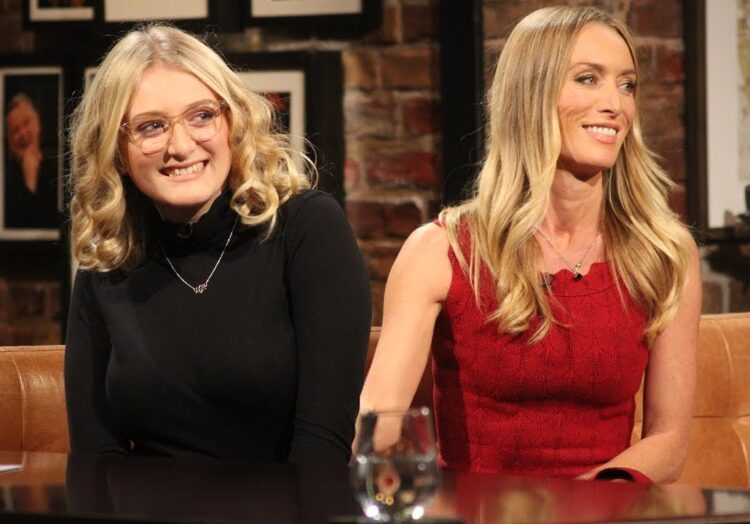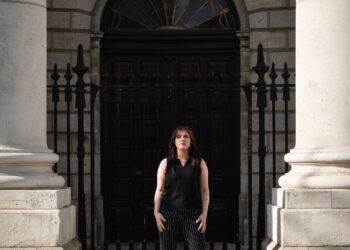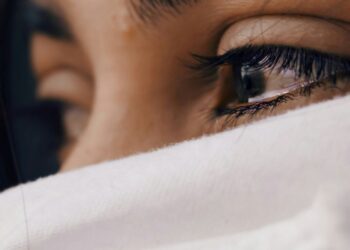Nothing is out of the question at Retina 2019, a conference by Fighting Blindness
Members of the public can discuss their concerns about sight loss with eye experts at Fighting Blindness’ Public Engagement Day taking place at Retina 2019.
Retina 2019 is a three day international gathering of researchers and clinicians from all over the world. Taking place in the Radisson Blu Hotel, Golden Lane in Dublin 8, members of the public can register their attendance at www.retina.ie. The opening address at the conference will be given by Fighting Blindness ambassador and actor, Victoria Smurfit. Victoria’s daughter, Evie, has Startgardt disease, a rare genetic form of retinal degeneration which causes progressive loss of vision.

The public can ask questions such as:
- How long before I can expect a treatment to stop further deterioration of my sight?
- Is there anything I can do to avoid passing my genetic sight loss condition onto my children?
- What research holds the most potential to save my sight?
Find out more here.
Positive outlook
Getting a diagnosis that your sight is at risk is a terrifying prospect. Now there are organisations like Fighting Blindness that can help people to adjust and accept their diagnosis, but that wasn’t always the case.
Sharon Tracey is a patient ambassador for Fighting Blindness, who is keen to raise awareness of sight loss issues. She is a positive example of how determination can ensure you can still live a full life with limited sight. She was diagnosed with Stargardt disease at the age of 18 — but has a great career and family life in spite of her condition. Stargardt disease causes a progressive loss of vision as a result of damage to the central part of the retina. The condition leads to the loss of central and colour vision, but peripheral vision is usually preserved. It’s a genetic condition with no known treatment or cure.
Sharon had just lost her grandmother, who raised her, when she was diagnosed. “I was still grieving, and it felt like my world had collapsed around me. The only thing I can remember from my meeting with the consultant is the word ‘blind’,” Sharon says. “There was no support, no advice, no counselling. I thought I would never work, never marry, never have children. I was in a dark place.”
Becoming a mother changed everything for Sharon. “Suddenly I had this baby girl who needed me, and I needed her. She loved me unconditionally; she didn’t care about my eyesight. I was only 21 and when I split from Amy-Louise’s father. I knew that I needed a plan. I knew I had to get our life together.”
Sharon trained as a telephonist and her career has taken her from the Midland Health Board in Tullamore, to Guinness in Dublin, to the Department of Education in Athlone and back again to Tullamore, this time to the Department of Education and Skills. She uses special technology to help her work, such as a computer and calculator that reads out loud to her. She also makes sure that everyone in her workplace is aware of her condition.
Beyond her day job, Sharon has earned qualifications in equality studies, counselling skills, life coaching, reflexology, access consciousness, integrated energy therapy and reiki. She works with clients two evenings a week, to encourage them to live life to the fullest.
Setting her own example, even though Sharon has just her peripheral vision left, she doesn’t let her condition hold her back. “She has visited most major cities in Europe, as well as visiting the USA, the United Arab Emirates, Egypt, Cuba, and the Himalayas in India. She has gone snorkelling in the Red Sea and on a pilgrimage to Lourdes. She has kissed the Blarney Stone (despite her fear of heights), climbed Croagh Patrick in the snow and cycled the Ring of Kerry on a tandem bike.”
“I live a very full and enjoyable life. I work full-time in a permanent job. I’ve raised my beautiful daughter and I am in a loving relationship with a wonderful man. The things I thought I would never have, I have achieved them and continue to enjoy life to its fullest.”
Visit fightingblindness.ie for more.








